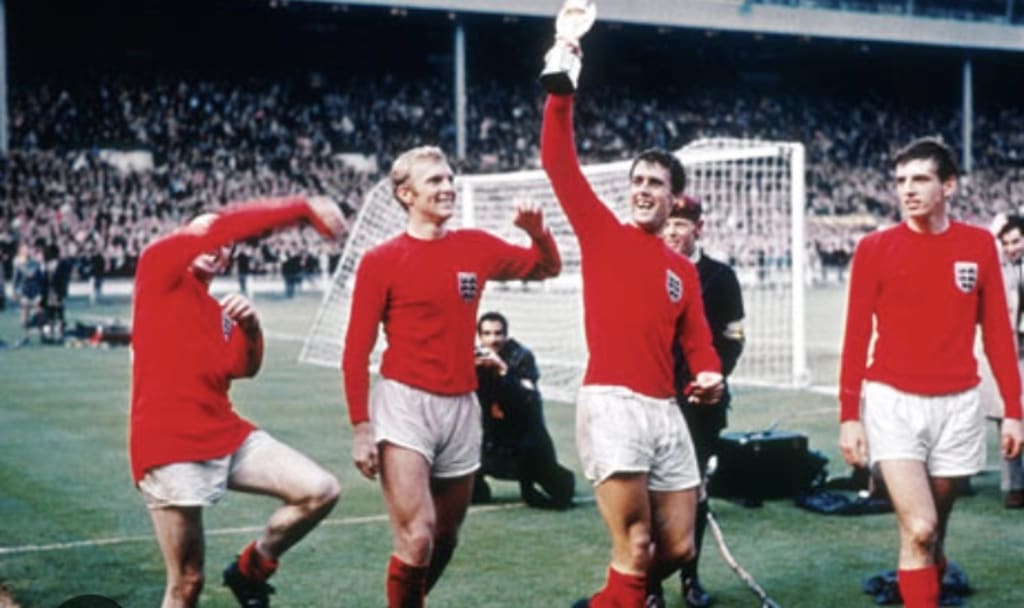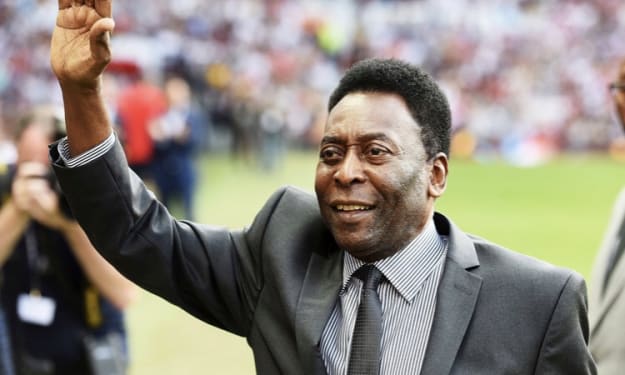Bobby Moore: Leading England to World Cup Glory
A Humble Beginning: The Early Years of Bobby Moore

In the summer of 1966, amidst a wave of excitement and anticipation, the eyes of the world turned to England as they played host to the eighth FIFA World Cup. The nation's hopes rested on the shoulders of one man: Bobby Moore, a humble yet fiercely determined leader who would go on to etch his name in football history.
Born in Barking, Essex, in 1941, Moore's journey to football stardom was a tale of dedication and perseverance. From the dusty streets of his childhood to the hallowed turf of Wembley Stadium, his journey epitomized the essence of the beautiful game. A central defender with an innate ability to read the game and a calmness that belied his young age, Moore's rise through the ranks was meteoric.
As the captain of West Ham United, Moore had already established himself as a formidable force. But it was on the international stage that he would leave an indelible mark. Leading the England squad into the World Cup tournament, Moore's leadership skills shone brightly. His demeanor was one of quiet authority; he led not with flamboyance, but with a stoic determination that inspired his teammates.
The group stage saw England navigate their way through challenges, but it was the knockout rounds where Moore truly showcased his prowess. In the quarterfinal against Argentina, Moore's composure was tested to the limit as he faced off against the fiery temperament of Argentine captain Antonio Rattin. Despite the tension, Moore's diplomacy and focus on the game earned him respect, and he steered his team to victory.
The semifinal clash with Portugal witnessed Moore's masterful defensive skills, as he marshaled his backline with precision. His ability to intercept passes, execute crucial tackles, and distribute the ball seamlessly showcased the complete package he brought to the game. England triumphed 2-1, securing their place in the final.
And then came that iconic day, July 30, 1966 – a date etched in the annals of English football history. The final, against West Germany, would forever define Moore's legacy. As Geoff Hurst's hat-trick sealed a 4-2 victory in extra time, it was Moore who provided the bedrock upon which this triumph was built. His partnership with fellow defenders ensured that England's goal remained steadfast.
But it wasn't just Moore's on-field exploits that captured hearts; it was his humility, grace, and sportsmanship that set him apart. As he lifted the Jules Rimet Trophy, a symbol of ultimate victory, the world saw a man who embodied the values of the sport. His tears of joy resonated with fans worldwide, as they recognized the culmination of a dream not just for Moore, but for an entire nation.
Beyond the euphoria of that triumphant moment, Moore's legacy extended far and wide. He continued to represent his country, amassing a record number of appearances for an English outfield player. Off the field, Moore's impact was equally profound. He remained a role model for young players, emphasizing the importance of discipline, teamwork, and respect.
Tragically, Moore's life was cut short in 1993, a loss that reverberated throughout the football community. But his memory lives on through the countless anecdotes, stories, and images that encapsulate his extraordinary journey. From the West Ham United's Boleyn Ground to the grandeur of Wembley, his spirit remains woven into the very fabric of English football.
Bobby Moore's legacy is not merely defined by a World Cup triumph, but by the character he displayed and the inspiration he provided. He demonstrated that true leadership is a blend of skill, determination, and integrity. His story is a reminder that heroes are not just those who lift trophies, but those who uplift the hearts and minds of people.
In the end, Bobby Moore's tale is a tapestry of triumphs, challenges, and unwavering spirit. It's a story that transcends the sport itself, touching the hearts of all who hear it. As the years roll on, his name continues to echo through stadiums and conversations, a testament to the enduring power of a captain who led his nation to World Cup glory.





Comments
There are no comments for this story
Be the first to respond and start the conversation.